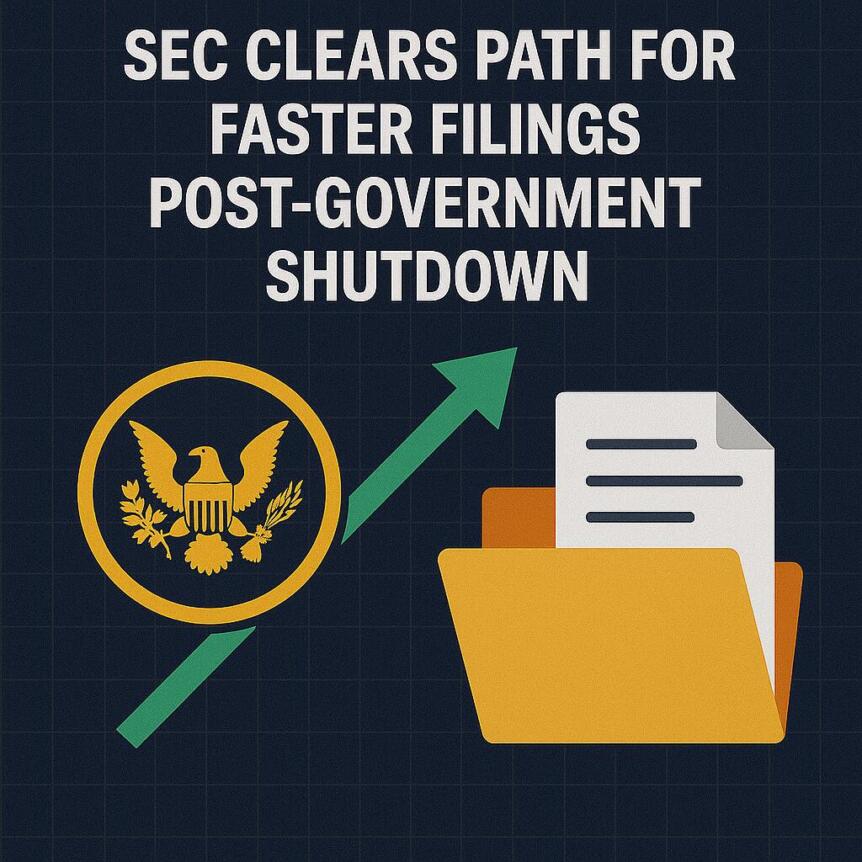The U.S. Securities and Exchange Commission (SEC) has provided new guidance to help issuers move forward with pending filings after the recent government shutdown. The shutdown led to a backlog of filings, including over 900 submissions that put significant pressure on the SEC’s review teams. As a result, issuers, particularly those preparing for crypto exchange-traded funds (ETFs), are now seeking faster clearance.
The SEC confirmed that filings without any delaying amendments will now progress toward effectiveness after 20 days. This timeline follows the Section 8(a) rules, ensuring that issuers do not face unnecessary delays. The agency also reminded issuers to maintain accurate disclosures, as this responsibility remains unchanged. For those who filed incomplete documents during the shutdown, the SEC clarified that they can rely on Rule 430A to move forward.
Crypto ETF Issuers Gain Faster Approval Options
Eric Balchunas, Senior ETF Analyst at Bloomberg, emphasized that the new guidance could benefit issuers aiming to activate filings faster, particularly those involved in the crypto sector. He noted that some crypto issuers who skipped the 8(a) step might now try to speed up their filings. Bitwise, for instance, is expected to be the next filer in the crypto ETF queue. Attention is now focusing on how quickly the SEC can process these filings.
Moreover, the SEC confirmed that issuers can request an acceleration of their filings if they add delaying amendments before the 20-day window expires. This offers issuers greater control over the timing of their launch. The SEC also clarified that post-effective amendments filed during the shutdown would continue to move forward. Issuers needing extra time are encouraged to contact their industry office directly.
Review Process and Backlog
The SEC reiterated that filings would continue to be reviewed in the order they were received, including those submitted. Companies that filed preliminary proxy statements can now submit their final versions if the 10-day review period has ended. However, reviews will still be conducted for filings flagged before the shutdown. For Form 10 filings, the SEC confirmed they would become effective after 60 days, with ongoing reviews as necessary.
The SEC’s updated guidance offers issuers a clearer path to address filing delays caused by the shutdown. This streamlined process should help reduce the backlog and ensure a smoother transition for companies, particularly in the rapidly evolving crypto space.







